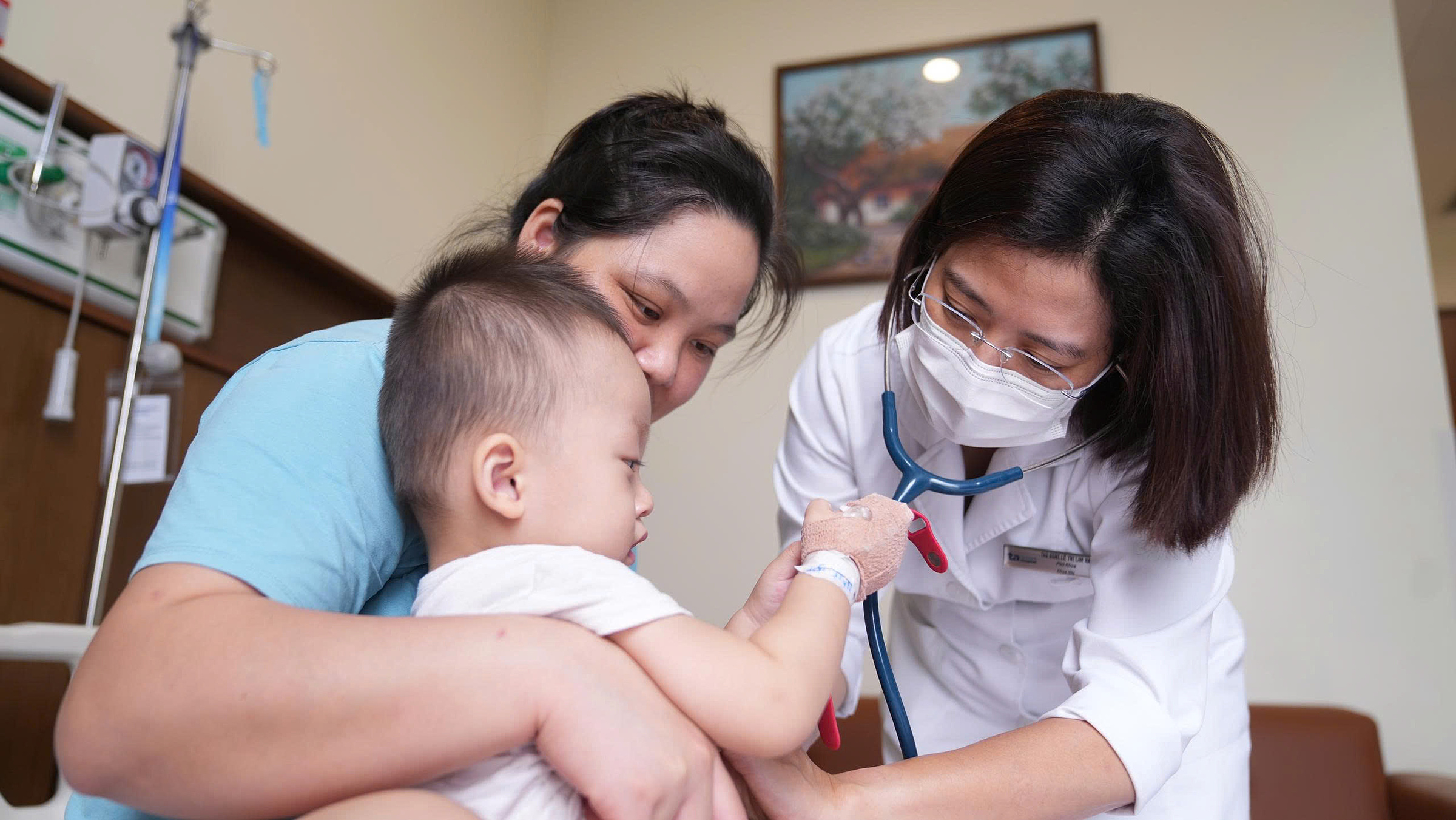Gastroenteritis, an inflammation of the stomach and intestines, can be caused by various factors, including viruses (such as norovirus and rotavirus), bacteria (like E. coli and salmonella), parasites, or chemical poisoning. The illness causes discomfort, diarrhea, abdominal pain, nausea, vomiting, and sometimes fever. Dr. Le Thi Lan Anh, Deputy Head of the Pediatrics Department at Tam Anh General Hospital in Hanoi, says the illness is common in children under 5. Without proper care, it can lead to serious complications such as severe dehydration, electrolyte imbalance, hypoglycemia, and acute kidney failure.
With proper care, children with gastroenteritis usually recover within a few days. Symptoms like vomiting, diarrhea, fever, and fatigue typically subside after one to three days, with full recovery within a week. According to Dr. Lan Anh, the best approach is to prevent the spread of the germs that cause it. Parents should proactively implement preventive measures.
Teach children to wash their hands frequently.
Frequent handwashing is crucial for preventing gastroenteritis, as the viruses primarily spread through the fecal-oral route when children touch contaminated surfaces like toys, doorknobs, or household items. The habit of putting hands in their mouths, rubbing their eyes, or eating with unwashed hands allows viruses to easily enter the body, causing diarrhea and vomiting. Parents should teach children to wash their hands with soap and clean water, especially before eating, after using the toilet, and after playing outdoors. Parents should also clean surfaces like tables and doorknobs with disinfectant to ensure their children's safety.
Avoid close contact with people who have gastroenteritis.
Children should avoid close contact with individuals suffering from gastroenteritis, as the virus can spread through vomit or direct contact during daily activities and shared meals. Due to their underdeveloped immune systems, children are highly susceptible to infection through close contact, especially in enclosed environments like homes and classrooms. Children should not share bowls, spoons, cups, or towels with sick individuals.
 |
Dr. Lan Anh examines a young patient. Photo: Tam Anh General Hospital |
Dr. Lan Anh examines a young patient. Photo: Tam Anh General Hospital
Vaccinate your child.
Dr. Lan Anh advises vaccinating children against gastroenteritis, particularly with the rotavirus vaccine. Vaccination helps children develop immunity, reducing both the likelihood of contracting the illness and its severity if they do become infected.
Practice food safety.
Parents should thoroughly wash food, cook fish and eggs thoroughly, avoid giving children food that has been left out for too long, and refrigerate food properly. Breastfeeding for the first 6 months significantly reduces the risk of diarrhea. A diet rich in nutrients, protein, and vitamins strengthens the immune system.
Dr. Lan Anh recommends that children with gastroenteritis rest and stay hydrated, preferably with oral rehydration solutions (ORS), water, or electrolyte drinks, taken in small sips for better absorption. Avoid sugary drinks, juices, and sugary foods, as these can worsen diarrhea. Children should eat easily digestible foods like porridge, soup, bananas, rice, applesauce, and toast; avoid fatty, sugary, or dairy products during the acute phase.
Ensure children get enough sleep and avoid excessive activity to promote quick recovery. Do not give children anti-diarrheal or anti-vomiting medication without consulting a doctor. Maintain personal hygiene and a clean living environment to prevent spreading the illness to others. Seek medical attention if the child shows signs of severe dehydration, high fever, continuous vomiting, vomiting blood or bile, prolonged diarrhea, is under 6 months old, or has underlying health conditions.
Hang Tran
| Readers can submit questions about children's health here for doctors to answer. |












